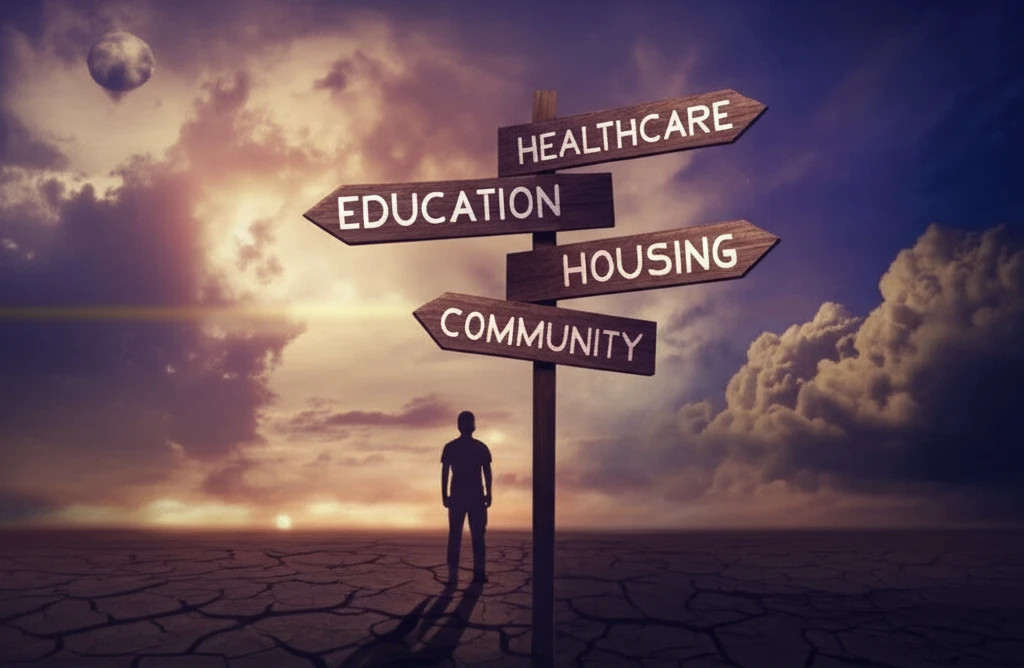
Beyond Healthcare: Unmasking the Social Factors That Really Determine Your Health
"Unlock the secrets to a healthier life by understanding how your environment, community, and access to resources dramatically impact your well-being."
We often think of health as something determined within the walls of a doctor's office. But what if the biggest factors influencing your well-being lie far beyond medical treatments and prescriptions? The truth is, our health is profoundly shaped by the social determinants of health (SDH) – the conditions in which we live, learn, work, and play.
These social determinants encompass a wide array of factors, including access to education, affordable housing, safe neighborhoods, healthy food options, and economic stability. Understanding and addressing these factors is crucial for creating a healthier and more equitable society.
This article delves into the fundamental knowledge of social determinants of health. We'll explore what SDH are, why they matter, and how they impact individuals and communities. Get ready to unlock the secrets to a healthier life by looking beyond traditional healthcare.
What Are Social Determinants of Health (SDH)?

The World Health Organization (WHO) defines SDH as "the conditions in which people are born, grow, live, work and age." These conditions can be social, economic, and physical and they affect the health, behavioral health, and general quality of life of populations. They are the unfair and avoidable differences in health status seen within and between countries.
- Affordable housing
- Access to education
- Public safety
- Availability of healthy foods
- Local emergency/health services
- Environments free of contaminated natural resources and/or life-threatening toxins (e.g., lead, waste)
Why Understanding SDH Matters
SDH is a key that will help you to understand your own health. Recognizing that medical treatments are only a part of the story, you can start to identify the issues in your life that are impacting your well being and start advocating to build healthier communities.
